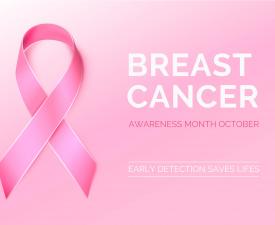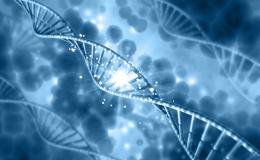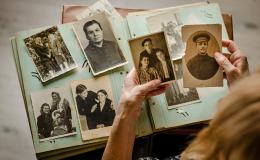What Should I Do if Breast Cancer Runs in My Family?
October 20, 2020
Breast cancer is prevalent in the United States, and many people have relatives that have been diagnosed with the disease. While the vast majority of breast cancer cases are considered sporadic, or not caused by an inherited, adverse change (mutation) in a gene, approximately five to ten percent of breast cancer cases are hereditary and can be passed from an affected parent to their child.1

In recognition of Breast Cancer Awareness Month this October, we discuss hereditary breast cancer, the increased risk associated with the disease and what steps you can take to better assess your genetic risk.
Hereditary breast cancers are caused by adverse mutations in genes that regulate cell growth and division. An affected mother or father that carries a hereditary breast cancer gene mutation has a 50% chance of passing the same mutation on to their child. Importantly, hereditary breast cancer mutations are rare: mutations in two of the most common genes associated with hereditary breast cancer, BRCA1 and BRCA2, occur in roughly one out of every 400 individuals in the U.S.2 Despite their rarity, hereditary breast cancer syndromes significantly increase an individual’s likelihood of developing the disease by altering the function of one copy of a cell growth and division gene in virtually every cell at birth. Over time, affected individuals acquire additional gene mutations, and eventually, a sufficient number of mutations in cell growth and division genes may allow a single cell to become cancerous and divide uncontrollably.
There are over a dozen genes associated with an increased risk of developing breast cancer, and more will be discovered in the future. Depending on the gene mutation an individual harbors, the risk of developing breast cancer can vary widely. For example, a woman with a BRCA1/2 mutation has a 70% risk of developing breast cancer by the time she reaches 80 years of age, whereas a woman with an NBN gene mutation has about a 30% lifetime risk of developing breast cancer.2
The first step in assessing your hereditary breast cancer risk is discussing your risk factors with a physician. Some risk factors for hereditary breast cancer include having a family history of breast and other cancers, particularly on one side of the family, and having relatives diagnosed with breast or ovarian cancer at a young age. Clinicians have a variety of breast cancer and genetic risk assessment tools available to determine whether or not your risk factors and family history warrant further testing.
If your doctor decides that you are at high risk for developing breast cancer, they may refer you to a genetic counselor to determine if hereditary cancer screening is appropriate. Genetic counselors assess genetic risk, guide patients through the genetic screening process and help patients understand and build an action plan based on their screening results. Importantly, not every person that has a hereditary breast cancer mutation will develop breast cancer: some individuals will never develop breast cancer and some individuals may develop another form of cancer. Genetic counselors can ensure that you not only understand your risk, but also proactively manage that risk.
Comprehensive hereditary cancer screening tests are designed to screen an entire panel of hereditary cancer genes, including hereditary breast cancer genes, to determine if a patient possesses a mutation that predisposes them to cancer. Hereditary cancer screening can provide clinicians with the specific gene mutation a patient carries, allowing healthcare providers to tailor patient screenings and preventive therapies for cancers associated with that mutation. This personalized approach is designed to not only mitigate risk, but also detect disease at the earliest possible stage. The ExpedioTM Hereditary Cancer Screening test screens for mutations in 33 genes associated with hereditary cancer, including hereditary breast cancer. Click here to learn more about ExpedioTM or contact us with any questions you have regarding our genetic screenings.




